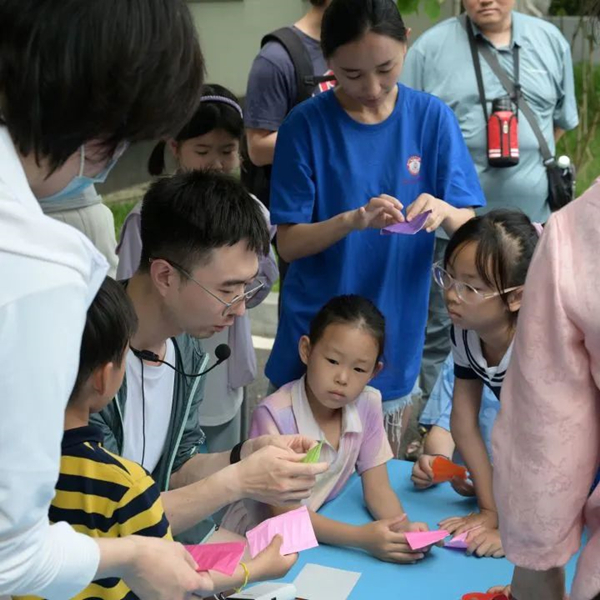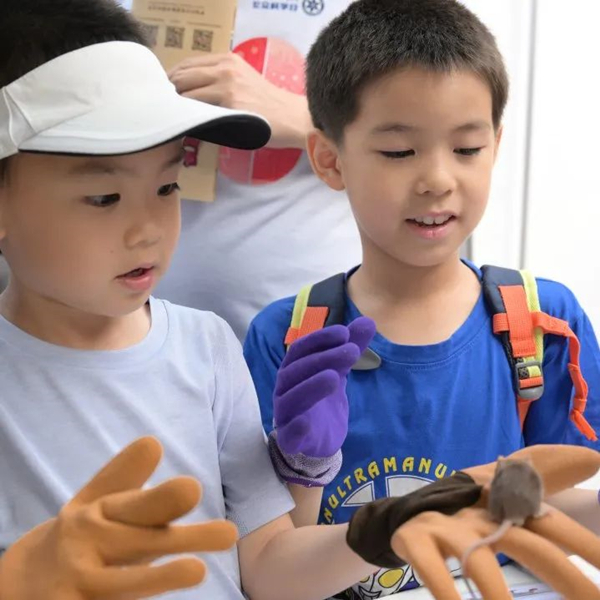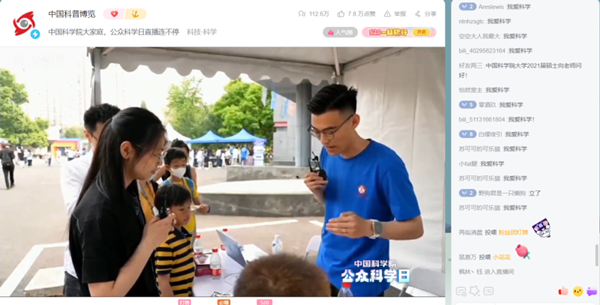Home> News
BSC hosts popular science events to mark National Sci-tech Workers’ Day
Updated: 2024-05-29
The Biophysical Society of China (BSC), in collaboration with the Institute of Biophysics at the Chinese Academy of Sciences (CAS), hosted popular science events themed "Unveiling the Magic of Life" & the 20th CAS Public Science Day in Beijing on May 19.
These activities, aiming to observe the National Science and Technology Workers' Day, featured both in-person sessions and interactive online livestreams, drawing over 1,000 on-site participants and a total of 165,000 viewers.
Students from eight schools joined the four teams of biomacromolecules, brain and cognitive sciences, epigenetic regulation and intervention, and infection and immunology to complete biophysical decoding tasks and compete for the highest honor, the Golden Shell Cup.
Following the competition was a science-themed fair, in which children could engage in a variety of scientific experiments and learn about different experimental setups and lab animals.


Students learn about experimental setups and lab animals during the science outreach events. [Photo/WeChat account: BSC]
To engage more science enthusiasts, the events were livestreamed on 12 social media platforms including its Bilibili channel, which enabled viewers to understand the principles of optical microscopy, observe eye-tracking research and complete tasks alongside the in-person teams.

Viewers of the popular science events send live chat messages. [Photo/WeChat account: BSC]
As a key force in science popularization, the BSC has remained committed to innovation, inclusiveness, collaboration and public engagement. By integrating high-quality resources and innovative thinking, the society provided participants with diverse scientific interactions and showcased the importance and impact of life sciences in empowering science education and enhancing scientific literacy, said participants.
Looking ahead, the BSC aims to leverage its talent pool to expand its network of popular science bases and encourage more young people to engage in popular science activities.
